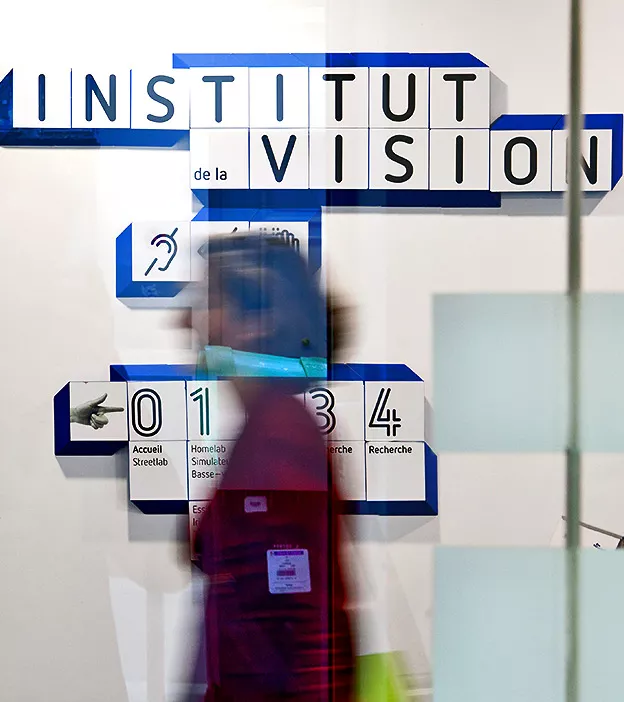Bequests, notarized donations and life insurance
By bequeathing a legacy, making a notarized donation during your lifetime, or taking out life insurance in favor of the Institut de la Vision, you are taking part in groundbreaking research on eye diseases and giving hope to thousands of patients.
As a Scientific Cooperation Foundation, the Institut de la Vision, like a foundation recognized as being of public utility, is authorized to receive legacies, donations and life insurance policies without having to pay inheritance and transfer taxes.
This means that everything you pass on goes directly to research and the discovery of innovative treatments
Organising my estate
« No one knows what the future holds. I was keen to organize my succession and to benefit certain foundations. Among them, I chose the Institut de la Vision, which will inherit part of my estate when I die. It is important for me to know that this money will help to accelerate research into eye diseases, which I know can turn lives upside down and make them so difficult.»
— M. Martin B, testator for the benefit of the Institut de la Vision

Notarized donations: giving during your lifetime
A notarized donation is a gift by which the donor transfers ownership of an asset, without consideration, to another person.
If the asset is real estate, this kind of donation must be made by means of a notarial deed. In other cases, it can also be made by means of a notarial deed or simply by handing over a check or an object, or by bank transfer. The donor benefits from the same tax reductions as for a manual gift.
There are 3 types of notarized donations:
- An outright donation is a transfer of ownership of one or more assets. An outright donation thus transfers to the beneficiary the right to use and dispose of the donated assets.
- A bare ownership donation is a proposal to transfer ownership of one or more assets, but to retain the usufruct for yourself or a loved one, for a fixed period or for life.
- A temporary donation of usufruct allows you to give the Institut de la Vision the usufruct of a property or a securities account for a fixed period of time. This type of donation has tax advantages, in terms of income tax and property wealth tax (for real estate) and must be made before a notary.

Bequests: passing on your assets by will
Making a bequest allows you to pass on one or more assets free of charge after your death. To do this, you simply need to write a will and entrust it to your notary. In order to designate the Institut de la Vision as the beneficiary of your bequest, you must indicate our exact contact details, namely: Foundation Voir et Entendre - Service donateurs – 17 rue Moreau, 75012, Paris
Your will only becomes effective after your death and you can choose to modify or cancel it at any time.
There are several types of bequests:
- Universal bequest: you bequeath your entire estate
- Bequest to a universal title: you bequeath a share of your estate or a category of assets.
- Bequest to a particular title: you bequeath one or more assets specifically designated in your will
You can be generous, while still favoring your loved ones, thanks to the bequest with charge.
To find out more, contact-us
Taking out life insurance
A life insurance policy, a savings and capitalization tool, allows you to pass on capital to a beneficiary.
If you choose to take out life insurance, you can name Institut de la Vision's Foundation as the sole beneficiary or as one of several beneficiaries, specifying the percentage you wish to allocate to it.
Request your “Legacies, gifts and life insurance” brochure
If you wish to be contacted confidentially, please send an email to Anne-Maud Fablet: anne-maud.fablet@institut-vision.org

